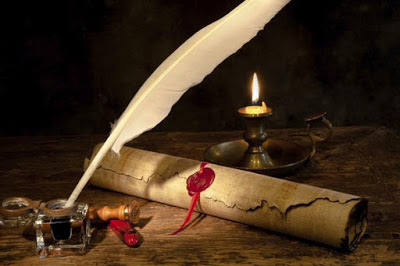How Not To Plan A Novel (Some Tips)

Whatever we write, be it short story, play, novel or poem, we all go through the same initial process: Planning. There are more ways of planning a piece of writing than there are pieces of writing - please read on quickly as I'm not sure this analogy works.
It is said you are either a ''planner'' or a ''pantster''. As the world's weirdest combination of the two (more anon) I don't think I am in the slightest degree qualified to lay down the law on the Hows and How Nots. Nevertheless, given that my lack of expertise has never stopped me piling in and sharing my ignorance, and several people who've read my three Victorian crime novels have asked me how I went about it, here's what I do:
Thinking: Every book I've ever written has started in the same place. Inside my head. I spend an inordinate amount of time before starting, and during the writing process just mulling over ideas for story development, or characters. Many of them will be discarded. Sometimes I do this lying on my bed, sometimes I go for a walk, sometimes I carry the story around whatever I'm doing. But however it happens, nothing begins without a lot of thinking taking place. No notes are made at this stage. The thinking will recur regularly right throughout the writing process.
After a lot of cogitation, I progress on to:
Sketching: This is where I might make a few notes on paper. More likely I will write up small sections of the book, or small pieces of dialogue that I quite like. I know the names of the main characters (secondary ones get named as they appear). At this stage I usually have a couple of ''pages'' at the end of a file named ''new book'' with phrases or descriptions that I think I might incorporate.
When I think I know, very roughly, what I might want to say, I progress to
Researching: For Diamonds & Dust, Honour & Obey, Death & Dominion and now Rack & Ruin I visited London and took pictures of the areas I thought I wanted to use. I went online and searched for original documents (there are loads on various Victorian sites). I transferred the entire contents of 3 local libraries' Victorian history section to my TBR pile (rotating as necessary). And I read every novel written in the period that I could -- frequently skimming to get a sense of it.
At this stage, I have a couple of random pages of notes, some online, a pile of downloaded articles, and books with bits of paper and bus tickets poking out of them. Again, researching is not a finite process and will change as I write and need to find out different things.
And now finally, I start:
Writing: I always do this the same way. I write the end. Then I write the opening section. Then I write a bit more of the opening ... a bit more of the end. Then I kind of join them up. Yup. Weird. And AT NO STAGE do I ever have a clear idea of the overall structure of the book or what is going to happen next. It's like fast downhill skiing in the dark.
No serious pre-plotting is ever done. None. No story arcs. No narrative graphs. No cards files. Nothing. The story evolves as I write it. And I write in short episodic sections, rather than chapters, tracking the story through a host of different characters. It's a spirally way of doing it rather than a linear one. I think it makes the story far more pacy and exciting - certainly for me as the writer, although it is sometimes like herding cats as bits of plot wander off into the long grass and have to be rescued.
As I write, I also revise in the light of the direction the story is taking. The whole thing takes about eight months. And then I have to go back and edit. So that's me. Chaos and madness.
How do you plan ....?
Published on December 09, 2016 10:59
No comments have been added yet.



